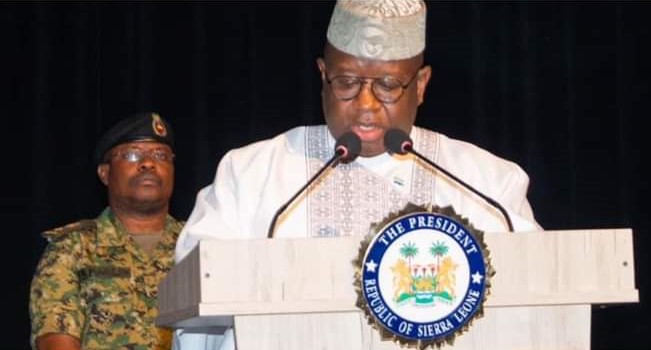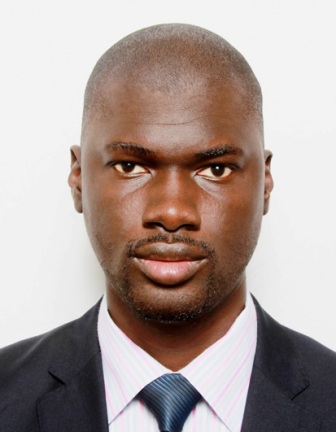Stakeholders forum on accessible ICT for blind and low vision persons
Statement Delivered By The Deputy Minister Of Information And Communications: I have the pleasure of representing the substantive Minister of Information and Communications, the Honourable Kotho I.B. Kargbo, who is unavoidably absent due to international official assignments. His intense interest in this historic occasion needs not be over-emphasised as he even called this morning from Brussels to remind me to attend. I therefore feel very much honoured and delighted to be part of this history-making occasion.
Certainly, ladies and gentlemen, I must doff my hat to the Sierra Leone Association of the Blind (SLAB) and the Sierra Leone Community-Based Rehabilitation Programme for being the vanguards and front-runners in organising the first ever ICT accessibility forum for the blind and low vision persons in Sierra Leone. They are definitely leaving some irreplaceable footprints on the sands of time.
There is no gainsaying the fact that Information and Communication Technologies (ICTs) play a vital role today in facilitating the attainment of the development goals of any nation. Over the last few years, many African countries have taken advantage of the opportunities provided by ICTs and have put in place ICT-enabled implementation plans to support their socio-economic development efforts. These country-successes have been made possible due to the combined efforts of all stakeholders and with support from regional and international organizations as well as bilateral partners and the private sector.
The Economic Community of West African States (ECOWAS) developed a harmonised policy for ICT in the West African region. The 15-Member States of ECOWAS have recognised the importance of formulating an ICT policy. And in all this, the commitment of the leadership of President Ernest Bai Koroma in revolutionising information and communication technology in this country is manifestly demonstrated in the conscious efforts devoted to this course. In line with this, my Ministry developed and localised a National ICT Policy document that attempts to map the ways in which ICTs can be used to achieve the basic development objectives of Sierra Leone. Using the Poverty Reduction Strategy Paper, Vision 2025, and the Millennium Development Goals as baselines for analyses, the policy links the application of ICT to national development goals identified under specific areas or ‘pillars’ with a series of ICT-specific objectives and targets for measuring progress over a 5-year implementation timeline. The development of this policy is the result of the consultative approach of all ICT stakeholders in Sierra Leone. Thus, this government, particularly my Ministry, knows that ICT can play a critical role in improving the quality of life of Sierra Leoneans especially those considered to be marginalised and disadvantaged (e.g. the blind, low vision persons, the physically and mentally challenged). I am sure SLAB knows very well that the policy emphasizes the need for providing training across the country for these disadvantaged groups and providing them with ICT related opportunities.
The continuing growth of ICTs has an ever-increasing impact on people’s lives. Information can be accessed remotely and in the comfort of people’s own home; people can interact with friends and family via email, instant chat or Voice over IP services such as online shopping, paying bills and “distance learning”. However, people who are visually impaired, or who have other forms of disability are, in many cases, not able to take full advantage of all these integrated ICT facilities in our community. This is primarily due to the inaccessibility to this user-group of the visual based content being offered by ICT products and services. As a government, we find this scenario very discriminatory. To bridge the gap therefore, the newly set up National ICT Advisory Council headed by President Koroma is putting modalities in place to ensure an enabler ICT project to minimise or remove the “Digital divide” from our communities. Indeed, space was created for the disabled (including the blind) to be represented in the Council. Through the Council, the Ministry and NATCOM will encourage and urge all ICT service providers to start using the capability of fixed mate and mobile convergence in networks to support visually impaired or blind people.
The Government is keen to see the entry of new technologies in the ICT market in the bid to provide universal access to all, and we are challenging providers to collaborate not only with us but with all other local and international stakeholders to achieve the desired goals. We would soon transform the use of ICTs in this country as my ministry is assiduously working towards the landing of the fiber-optic cable, which would surely fast-track the fulfillment of the objectives of this forum.
I will not conclude without reiterating that the Sierra Leone Association of the Blind (SLAB) has made history out of courage and determination that will inspire all of us the participants, contributors and service providers to forge ahead with the rapid developmental pace that is continually turning the globe into a real village.
SLAB’s desire to join the rest of us in enjoying the benefits of ICTs is a proof of the pudding in the saying that ‘disability is not inability.’ Being visually impaired does not make you less human; being blind should not stop anyone from getting the best out of life. You know of David Blunket, the blind man who became one of the best Ministers in the government of former UK Prime Minister Tony Blair; you know of Ray Charles, the blind African American who became one of the greatest musicians of all time; I know of Pa Ansumana Kanu, a blind man in my village who used to be the greatest song leader in our local church; and I need not over-emphasise how Jesus Christ was friendly to blind people.
SLAB, we are happy to associate with you, we are glad to partner with you, and we are ready to walk the walk with you. This group has certainly thrown a challenge to other disabled or disadvantaged groups like the physically disabled on wheel chairs in our streets to organise themselves for the achievement of laudable goals like this.
I want to assure you that this Government, through my Ministry, will give you the necessary support required to achieve your dreams.
I thank you all and God bless you.
Stay with Sierra Express Media, for your trusted place in news!
© 2011, https:. All rights reserved.






